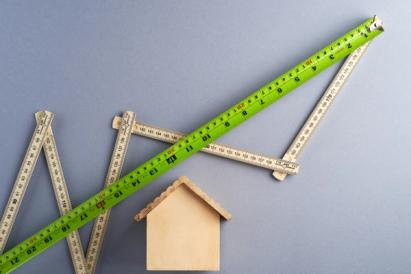These 5 Tips Will Save You Thousands On A Mortgage
Written by:
Patrick Boyaggi
Patrick Boyaggi
CEO an Co-Founder
Patrick is the Co-Founder and CEO of Own Up. He has a wealth of experience and knowledge as a mortgage executive.
See full bio

If you aren’t shopping around for a mortgage lender, you are leaving thousands of dollars on the table. Freddie Mac reported that the average borrower could save $1,500 by getting an extra quote and $3,000 with five or more quotes. Still, the most recent major report by the Consumer Financial Protection Bureau found that 47% of homebuyers don’t compare lenders and 77% of homebuyers only apply for one mortgage quote.
Finding the right lender is like finding the right house. There are a lot of boxes to check off. Own Up believes the process should be dictated by you and not the lender. That is why we provide a number of rate quotes from different lenders. Below are five tips to help you on your journey:
1-Get a Mortgage 101 Primer
Just as all houses and neighborhoods are different, so are mortgages. Own Up strives to empower customers, and one way we do this is through education. Few people are math wizzes, but unfortunately, mortgages are all about math. Below are three big things to understand:
- Your annual percentage rate (APR) depends on both the mortgage amount and the fees associated with buying a home. If lenders have different fees but offer the same interest rate, your APR will also be different.
- Some buyers choose to purchase points to reduce their interest rate. To understand if this is a good option for you, read here.
- There are two main types of mortgage rates: A fixed-rate mortgage and an adjustable-rate mortgage. Fixed-rate mortgages remain the same for the life of the loan while adjustable-rate mortgages start with a lower rate and then go up at some point down the road.
2-Be Pre-approved
The housing market is tight these days and properties sell quickly. Potential buyers who are pre-approved signal to real estate agents and sellers that they are serious. Potential buyers who have researched how much money they want to spend and have proof of their spending power, can more easily negotiate with sellers and agents.
3-Shop Around
Would you buy the first car you try? Or the first pair of shoes you try on? Probably not. There is great variety in consumers items both small and large, but you only know your options if you shop around.
Your must first decide whether to approach a lender directly or use a mortgage broker. A lender has a vested interest in the bank that employs them while a mortgage broker offers you multiple quotes. But remember, brokers are paid on commission, so the higher your mortgage is, the more they are paid. Own Up is different from bankers and brokers because our interests are aligned with yours. Because we charge a lower commission than brokers, lenders offer our customers lower rates.
In certain cases, different kinds of banks will serve your needs best. If you are self employed or have a lower credit score, a small local lender might be more willing to work with you.
4-Soft versus Hard Credit Checks
First-time homebuyers are often overwhelmed as there is a lot of lingo and financial education involved. Getting educated saves you frustration and money, and that is what Own Up is all about. The mortgage rate you are offered is based on your credit score. There are actually two kinds of credit inquiries: hard credit searches, which hurt your credit, and soft credit searches, which don’t.
But there is more to this story. Credit agencies understand that shopping around is part of the mortgage process and consider all similar credit searches within a 45-day period as one. Homebuyers who do their rate shopping within this period, will only see one check, or up to a 5-point ding on their credit score. But even this one can be avoided. Lenders are not required to run a hard check for preapprovals, which is why Own Up runs a soft inquiry only when issuing preapproval letters.
5-The Lowdown on Down Payments
Knowing what a house costs and what your interest rate will be is part of calculating your monthly payments, but not all of it. All buyers must also decide how much money they will put down. The traditional down payment is 20% of the loan value, but some borrowers will opt to pay more if they can while others will pay less to make the transaction possible. If you pay less than 20%, you are charged private mortgage insurance, or PMI.


